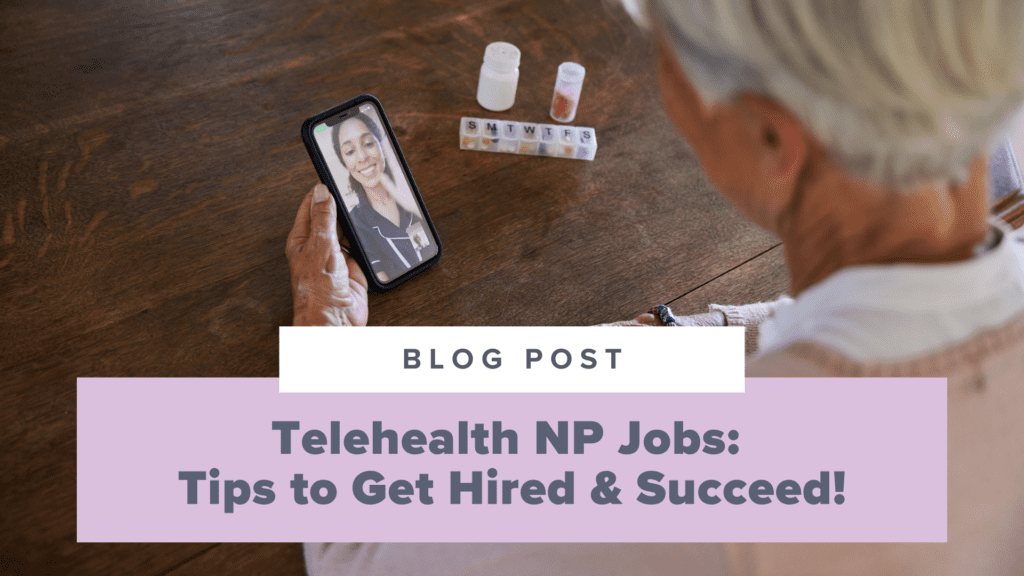Nurse Practitioner Burnout: How to Recognize, Manage, & Prevent It
- by
- Dec 29, 2023
- Articles

Burnout is a huge topic that’s never been more relevant to the general public, let alone the healthcare field. Pre-pandemic, there was more stigma attached to mental health in health care settings. But now, nearly four years since the start of the COVID-19 pandemic, burnout seems to be everywhere and lots of people are talking (and being open) about it. You see it all over social media: nurses and NPs leaving the profession, complaining about their jobs, but still choosing to stay in positions that don’t make them happy and satisfied.
A co-worker recently told me, “We’re all in the frying pan now. Some of us just have the heat turned up a little higher and longer.” I know what she means. Preventing and addressing burnout feels like just another form of PPE that all of us have to become familiar with and use.
After working in health care for more than 10 years, I have some thoughts I’d like to share about nurse practitioner burnout. Based on my experience, here’s how you can identify, manage, and prevent burnout as an NP.
What is burnout?
According to the World Health Organization, burnout is a result of workplace stress:
“[Burnout] is a syndrome conceptualized as resulting from chronic workplace stress that has not been successfully managed. It is characterized by three dimensions: feelings of energy depletion or exhaustion; increased mental distance from one’s job, or feelings of negativism or cynicism related to one’s job; and reduced professional efficacy.”
Although the term burnout goes back to the 1970s, it’s still sort of a controversial subject. Maybe a good way to start thinking about it is to say what it’s not. Burnout isn’t a medical condition, “a bad attitude,” or depression, though there can always be some combination of the three. It’s not an end state, but more of a dynamic and multidimensional experience.
It’s common to experience burnout in health care, as the work can be physically and emotionally exhausting, even on a normal day. Clinicians often use dark humor to cope with the day-to-day grind that’s a part of the job and the feeling they can only do so much to help people.
A similar idea called “moral injury” is also common in health care, though it’s different from burnout. Moral injury relates to things that are beyond someone’s control ( like distress over not being able to provide what patients need), while burnout comes from demands on a person’s energy or strength.
There still isn’t a “gold standard” approach to addressing burnout in health care settings. While there are calls to assess burnout among healthcare workers, there isn’t agreement on what data to look at and how it should be interpreted.
What does burnout look like as a nurse practitioner?
Before the pandemic, there was a common belief in healthcare that acknowledging burnout was admitting defeat. Many thought that managing stress was an individual responsibility, with solutions like “do more yoga” or “seek support from a friend.”
Nowadays, most healthcare institutions understand the lasting impact of pandemic-related stressors, moral injury, and the importance of assessing burnout. Some institutions are taking the lead in fostering a cultural shift within healthcare to prevent burnout.
As a trainee or new graduate, you’ve likely already seen burnout firsthand, whether you encountered it during clinicals or at your workplace. It could be your preceptor or a co-worker who is affected. Signs of it could be things like a loss of clinical curiosity, hope, or not thinking they make a difference. In more extreme cases, they may turn to substances or withdraw socially.
Whether burnout is already present or on the horizon, it’s important to take a proactive and realistic approach to minimize your risk as a nurse practitioner. Remember, you’re not alone, and there are measures you can take to safeguard your well-being!
How do I lower my risk for nurse practitioner burnout?
Beyond the huge importance of your support people (a healthy team, peers, “work-wife/spouse,” and mentors), your work environment is key when it comes to mitigating the flames that can lead to burnout.
When it comes to lowering your risk for burnout, there are a few things you can do so you don’t find yourself in a potentially difficult work situation.
Choose your workplace wisely
When researching workplaces, I think “real talk” on how a team or institution deals with burnout is a telling signal. It reflects leadership’s engagement and investment with clinical staff and their realities. This has a big impact on how fulfilled someone claims to be with their job and employer. And when interviewing for a position, you can definitely ask about what the organization does to support their clinicians to prevent burnout and high turnover (or resignation) rates.
There are a lot of good institutions that have programming to support and prevent burnout. A few examples include coaching services, committees, work groups, sabbaticals for staff, and unlimited PTO. From my experience, the greater the transparency on the subject, the healthier the organization.
Grow your people
Remember when you were little and were paired with another kid during field trips? I highly recommend connecting with and getting to know your co-workers. Not only does this make work more fun, you’ll also have a way to better monitor your mental health. You may even find a new best friend or simply someone with whom you can share clinical experiences. Over time, as you encounter risk factors for burnout, this person may serve as an accountability partner.
Next, find some mentors. These are the people who you may admire for their teaching or leadership style. More than once, I’ve gone up to people at work and been direct about identifying them as a mentor. If you find yourself in a place where you no longer recognize yourself or feel out of touch with your career goals, having one or even a handful of mentors throughout your career goes a long way.
How do I minimize burnout?
If you’re currently experiencing burnout, consider what it is about your situation that’s stressing you out. Some things to think about are your schedule, your ongoing development and leadership, and your life/work balance. In short, think through the aspects of work you can control versus what you can’t.
Change your schedule
Maybe the most overlooked contributor to burnout is commitment to a schedule. For instance, maybe you know that you can’t work the third shift, ever. Perhaps you’ve found the benefit of a long weekend every few months if your PTO allows it, or you know that you have to be out the clinic door by 4 PM every day. Your schedule really helps when it comes to managing stress.
As a reminder, any job or employer that truly values you will want to negotiate with you about ways to make you stay. Maybe you want to leave early every Wednesday, or want to try remote work one day a week, or you want to build in more administrative time into your schedule—whatever steps you want to take to improve your job satisfaction, your employer should be willing to work with you. If not, then consider that a red flag about the type of organization you’re working for.
Seek ongoing professional growth
Ongoing education is important for anyone working in healthcare. Investing in your professional development is essential for maintaining your license and credentialing. Your employers may even reimburse your efforts with additional time or money. Take advantage of this opportunity and sign up for that conference in a location where you can tag on a mini vacation at its end.
If there’s a specific training you want to pursue, consider how it lines up with your team or organization’s goals or needs. During your (ideally semi-annual) review process, you can explore ways to connect your own goals with your workplace. Even if you end up pursuing a training or professional development opportunity that isn’t directly supported by your employer, your increased expertise and engagement will benefit your current workplace or one in the future. Remember, your growth and development are important!
Find ways to reduce stress.
Again, more employers are going beyond the notion of “work/life balance” and promoting more flexibility in schedules, PTO, and the idea of one’s work role being a subset of their overall lifestyle. If you’re working there already, lucky you!
For the rest of us, it can take a little bit of effort to make room for activities that we truly enjoy and that don’t necessarily bring in a paycheck. The time and energy invested in that cycling or pottery class, spending more quality time with your kids or dog, or even participating in a 10k race this year would be great ways to reduce stress from your job.
The bottom line is, I think one of the best ways to manage burnout is to find things you like to do outside of work. Whether it’s channeling the stress of the job through some high-intensity exercise or keeping your mind sharp by learning a new language, the activities we enjoy are great ways to avoid burnout.
Further Reading
Depending on your career path, it may not be possible to fully shield yourself from nurse practitioner burnout. However, there are a few ideas here that can support you as you travel the road ahead. Take comfort in knowing that you’re not alone and that there are strategies to help you along the way!
Looking for more (free!) nurse practitioner content? Check out these other posts on the SMNP Reviews blog:
Search the Blog
Prepping for Primary Care NP Boards?
Join our Primary Care Live Study Group or check out the Self-Paced Courses & Qbank options!
Learn MoreExplore Specialty NP Qbanks & Mock Exams
Practice with board-style questions for your AGACNP, PMHNP, ENP, WHNP, or PNP exams.
Get StartedJoin our Facebook Group!
Get FREE support and encouragement from thousands of FNP/AGPCNP students and our NP support team.
Join the CommunitySign Up for Free Live Classes
Join us for FREE monthly live study sessions covering topics such as antibiotics, diabetes, musculoskeletal conditions, depression & anxiety, and more!
Grab a Spot


